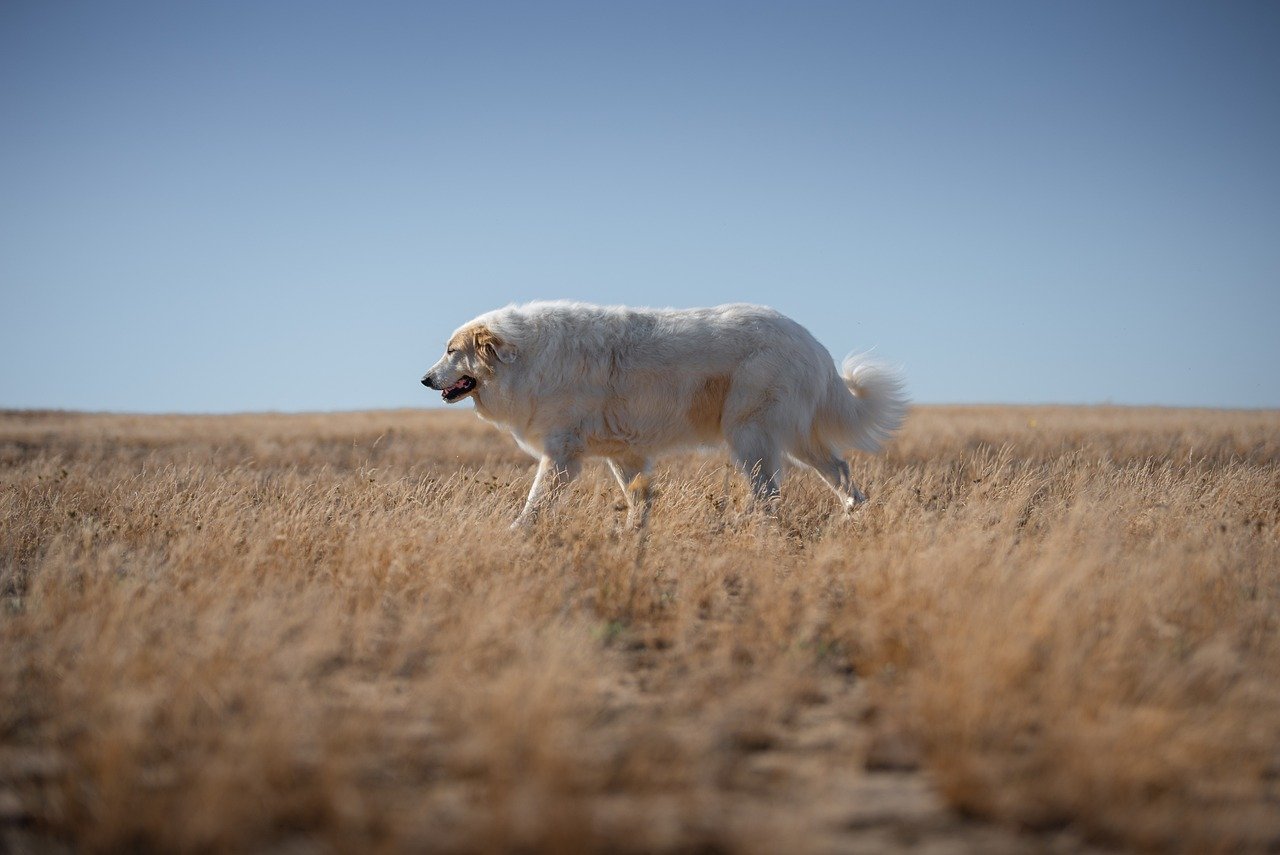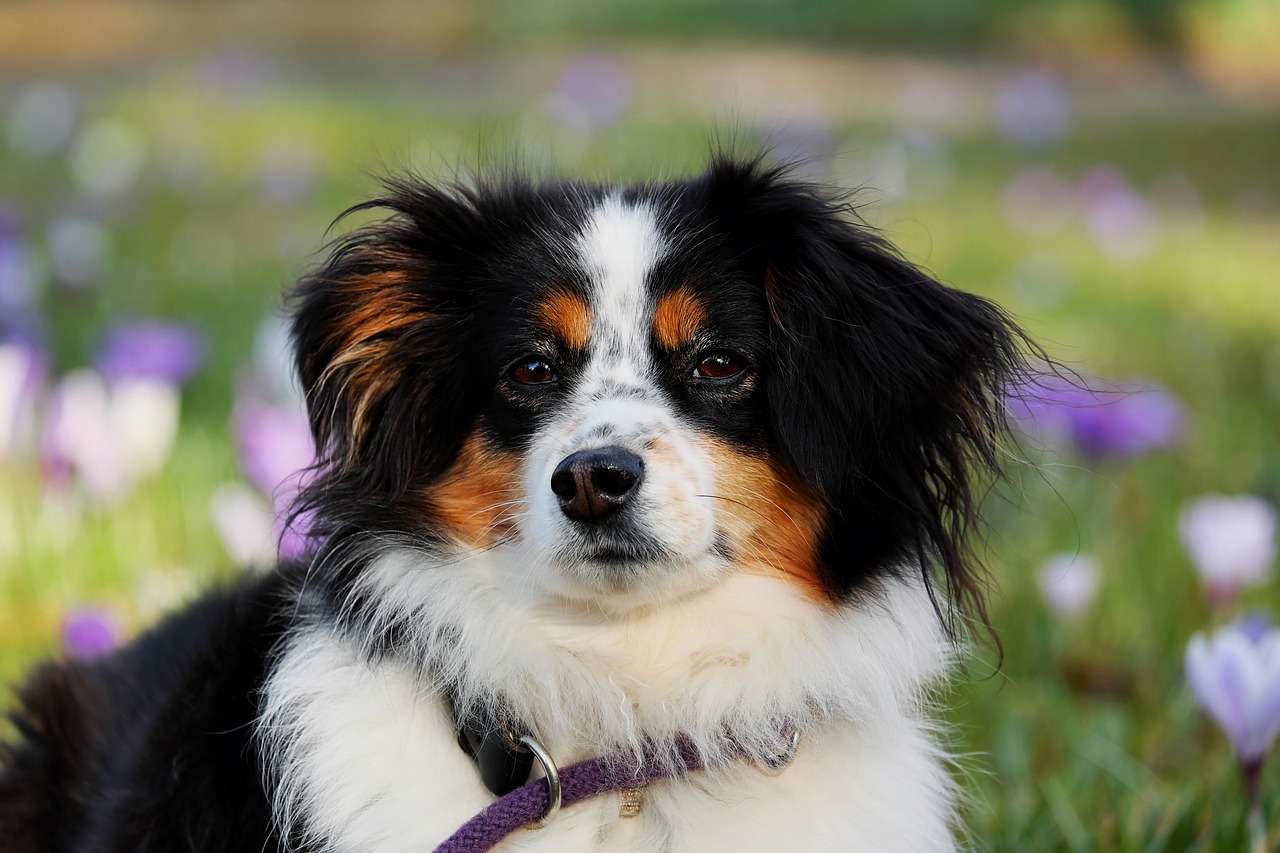The Intelligence of Dog Breeds - Who’s the Smartest?
When it comes to our furry friends, the question of intelligence often arises. Just like humans, dogs exhibit a wide range of cognitive abilities, and not all breeds are created equal. Some breeds stand out for their exceptional problem-solving skills, while others shine in their adaptability and trainability. So, who takes the crown as the smartest dog breed? In this article, we will dive deep into the fascinating world of canine intelligence, exploring various breeds, their unique traits, and the factors that contribute to their smarts. Get ready to embark on a journey that will not only enlighten you about dog intelligence but also help you appreciate the incredible capabilities of our four-legged companions.
Canine intelligence isn't a one-size-fits-all concept. It's a complex tapestry woven from different strands of cognitive abilities. Broadly speaking, we can categorize canine intelligence into three main types: instinctive intelligence, adaptive intelligence, and working intelligence. Each type plays a crucial role in how dogs learn and interact with their environment. For instance, instinctive intelligence refers to the innate skills that a dog is born with, such as herding or retrieving. Adaptive intelligence, on the other hand, is about a dog's ability to solve problems and learn from their experiences. Lastly, working intelligence pertains to how well a dog can learn commands and perform tasks, which is often what we think of when we consider training. Understanding these categories can help us appreciate the diverse ways in which dogs express their intelligence.
While intelligence can manifest in various ways, some dog breeds are consistently recognized for their exceptional capabilities. Let’s highlight the top contenders that often make the list of the smartest dog breeds:
- Border Collie: Renowned for their exceptional problem-solving skills and ability to learn commands quickly.
- Poodle: Highly trainable and versatile, excelling in various dog sports and activities.
- German Shepherd: Loyal companions that are highly intelligent, often serving in police and military roles.
- Golden Retriever: Known for their friendly nature and high trainability, making them great service dogs.
- Doberman Pinscher: Intelligent and alert, they are often used in protection and police work.
- Shetland Sheepdog: Extremely smart and eager to please, they excel in obedience training.
- Labrador Retriever: Friendly and intelligent, they are popular for their adaptability and trainability.
- Rottweiler: Known for their strength and intelligence, often used in guarding and protection roles.
- Australian Cattle Dog: Highly energetic and intelligent, they thrive in active environments.
- Papillon: Small in size but big in intelligence, they are quick learners and excel in agility.
Several factors contribute to a dog’s intelligence, including genetics, environment, and training methods. Understanding these influences can help owners maximize their dog's potential. For instance, the genetic background of a breed plays a significant role in determining its intelligence, as certain breeds have been selectively bred for specific tasks that require high cognitive abilities. Moreover, the environment in which a dog is raised can significantly impact its learning experiences and social skills. Lastly, effective training techniques, particularly those that utilize positive reinforcement, can enhance a dog's intelligence and ability to learn new commands and behaviors.
Measuring canine intelligence is not as straightforward as it may seem. Various methods exist, from standardized tests to behavioral assessments. These tools provide insights into a dog's cognitive abilities and learning capabilities. For example, some assessments evaluate how quickly a dog can learn new commands, while others test problem-solving skills through various challenges. By understanding the different ways to measure intelligence, dog owners can better appreciate their pets' unique abilities and tailor training approaches accordingly.
It's essential to understand the difference between working intelligence and adaptive intelligence. Working intelligence relates to a dog's ability to learn commands and perform tasks, often measured by how many repetitions it takes for a dog to learn a new command. Adaptive intelligence, however, involves a dog's ability to solve problems on its own, which is crucial for navigating everyday challenges. This distinction helps us evaluate a dog's overall intelligence more comprehensively.
Socialization plays a vital role in developing a dog's intelligence. Exposure to different environments and experiences enhances their learning and adaptability skills. Dogs that are well-socialized tend to be more confident and better equipped to handle new situations, which can lead to improved problem-solving abilities. Therefore, ensuring that your dog has various social experiences is not just beneficial for their behavior but also for their cognitive development.
Recognizing and celebrating the intelligence of various dog breeds helps owners understand their pets better and fosters a deeper appreciation for the unique abilities of each breed. Whether your dog is a quick learner or a master problem-solver, their intelligence is a testament to the bond we share with them. So the next time you marvel at your canine companion's skills, remember that intelligence comes in many forms, and each dog has its own special way of showing it.
- What is the smartest dog breed? The Border Collie is often considered the smartest dog breed due to its exceptional learning ability and problem-solving skills.
- How can I improve my dog's intelligence? Engage your dog in regular training sessions, provide mental stimulation through puzzles and games, and ensure they have socialization opportunities.
- Does breed determine intelligence? While genetics play a significant role, a dog's environment and training also greatly influence their intelligence.

Understanding Canine Intelligence
When we talk about canine intelligence, it's essential to understand that it isn't just a one-size-fits-all concept. Just like humans, dogs exhibit different types of intelligence that contribute to their ability to learn, adapt, and solve problems. Canine intelligence can primarily be categorized into three distinct types: instinctive intelligence, adaptive intelligence, and working intelligence.
Instinctive intelligence refers to the innate skills and abilities that a dog possesses based on its breed. For instance, herding breeds like the Border Collie are naturally inclined to herd livestock, while retrievers excel at fetching. These instinctual behaviors are hardwired into their DNA and are often the primary reason certain breeds are better suited for specific tasks. Imagine a Border Collie effortlessly guiding sheep across a field; that’s instinctive intelligence in action!
On the other hand, adaptive intelligence is all about how well a dog can learn from its environment and experiences. This type of intelligence is crucial for problem-solving and adjusting to new situations. For example, if a dog encounters a locked door, its adaptive intelligence might lead it to find another way out or to signal its owner for help. It's like watching a child figure out how to reach a cookie jar on a high shelf—it's all about creativity and resourcefulness!
Then we have working intelligence, which pertains to a dog's ability to learn commands and perform tasks as directed by humans. This type of intelligence is often measured during training sessions. Dogs that pick up commands quickly and can follow complex instructions typically score high in working intelligence. Think of it as the academic intelligence of the dog world; it’s all about learning and executing tasks effectively.
To put it all together, understanding these different types of intelligence helps dog owners appreciate their pets more fully. Each dog is unique, with its own blend of instinctive, adaptive, and working intelligence. By recognizing these traits, owners can tailor their training and interactions to suit their dog's specific abilities, ultimately leading to a more fulfilling relationship.
In summary, canine intelligence is multifaceted, and it’s this diversity that makes dogs such fascinating companions. Whether they are instinctively herding sheep, adapting to new environments, or mastering tricks, dogs continuously demonstrate their remarkable cognitive abilities. So, the next time you see your furry friend navigating a challenge, remember that there’s a whole world of intelligence at play!

Top 10 Smartest Dog Breeds
When it comes to canine intelligence, not all breeds are created equal. Some dogs seem to have an innate understanding of human commands, while others might take a little longer to catch on. So, which breeds are often recognized as the smartest? Let's dive into the fascinating world of dog intelligence and explore the top ten breeds that consistently rank at the top of the intelligence charts. These breeds not only excel in training and obedience but also exhibit remarkable problem-solving skills and adaptability in various situations.
1. Border Collie - Often hailed as the Einstein of the dog world, the Border Collie is renowned for its exceptional problem-solving skills and ability to learn commands at lightning speed. Their natural herding instincts drive them to think critically and act decisively, making them a favorite among dog trainers and enthusiasts alike.
2. Poodle - Don't let their fancy haircuts fool you; Poodles are incredibly intelligent and versatile. Whether they're competing in agility courses or performing tricks, Poodles showcase their high trainability and adaptability. They come in three sizes—standard, miniature, and toy—yet all share a common trait: a sharp mind ready to learn and impress.
3. German Shepherd - With their striking appearance and loyal nature, German Shepherds are not just beautiful; they are also highly intelligent. Frequently employed in police and military roles, these dogs excel in learning complex tasks quickly. Their strong work ethic and ability to follow commands make them one of the most sought-after breeds for service work.
4. Golden Retriever - Known for their friendly disposition, Golden Retrievers are not only great family pets but also incredibly smart. Their eagerness to please and ability to learn quickly make them excellent therapy and assistance dogs. They thrive on positive reinforcement, making training a rewarding experience for both dog and owner.
5. Doberman Pinscher - Dobermans are often misunderstood due to their imposing appearance. However, they are among the most intelligent breeds, known for their loyalty and protective instincts. With proper training, they can be both loving family pets and reliable working dogs.
6. Shetland Sheepdog - This breed is a smaller version of the Collie and shares many of the same traits, including intelligence and a strong herding instinct. Shelties are quick learners and excel in obedience and agility competitions, often outsmarting their competitors with their cleverness.
7. Labrador Retriever - Labs are not just friendly and fun; they are also incredibly smart. Known for their versatility, they excel in various roles, from service dogs to search and rescue. Their intelligence, coupled with their playful nature, makes them one of the most popular breeds worldwide.
8. Rottweiler - Rottweilers are known for their strength and confidence, but they are also highly intelligent. They are quick learners and respond well to training, especially when it involves tasks that challenge their minds. With the right guidance, Rottweilers can be loving companions and excellent working dogs.
9. Australian Cattle Dog - This breed is not just a working dog; they are also incredibly smart and energetic. Australian Cattle Dogs thrive on mental and physical stimulation, making them ideal for active families who can provide the exercise and training they need.
10. Papillon - Don’t let their small size fool you; Papillons are one of the most intelligent toy breeds. They are quick to learn tricks and commands, often outperforming larger breeds in obedience competitions. Their playful and affectionate nature makes them delightful companions.
In conclusion, these smart breeds showcase the incredible diversity of canine intelligence. Whether you’re looking for a working dog, a family pet, or a companion for fun activities, these breeds have proven themselves time and again as the top contenders in the intelligence arena.
Border Collie
The stands out as a true champion among dog breeds, often hailed as the most intelligent of them all. These dogs are not just smart; they possess an extraordinary ability to learn and execute commands with remarkable speed and precision. Imagine a dog that seems to read your mind, anticipating what you want before you even say it! This innate knack for understanding human cues makes them exceptional companions and working dogs.
Border Collies were originally bred for herding sheep in the rugged landscapes of the Scottish Borders. Their intelligence and agility were essential for managing livestock efficiently. Today, they continue to excel in various activities, from obedience competitions to agility trials. What sets them apart is their problem-solving skills and their ability to adapt to different tasks. They thrive on mental stimulation and physical exercise, which is why they are often seen participating in dog sports or engaging in complex games with their owners.
One of the most fascinating aspects of Border Collies is their working intelligence. This refers to their ability to learn commands and perform tasks based on training. A well-trained Border Collie can learn a new command in as little as five repetitions, a feat that many other breeds take much longer to accomplish. This incredible learning speed is a testament to their cognitive abilities and the strong bond they form with their human companions.
Moreover, their adaptive intelligence is equally impressive. This type of intelligence involves a dog’s ability to solve problems independently and think on their feet. For instance, if a Border Collie encounters an obstacle while herding, they will quickly devise a strategy to navigate around it, showcasing their quick thinking and resourcefulness. This blend of working and adaptive intelligence is what makes Border Collies not just smart, but also versatile and capable of tackling a wide range of challenges.
However, owning a Border Collie is not just about enjoying their intelligence. It requires commitment and dedication. These dogs need plenty of mental and physical exercise to keep them happy and healthy. Without proper stimulation, they can become bored, leading to destructive behaviors. Therefore, it's essential for potential owners to understand that a Border Collie is not just a pet; they are an active partner that thrives on interaction and engagement.
In summary, the Border Collie's reputation as the smartest dog breed is well-deserved. Their exceptional learning abilities, problem-solving skills, and adaptability make them a joy to train and live with. If you're looking for a canine companion that can keep up with your active lifestyle and challenge your mind, a Border Collie might just be the perfect fit!
- What makes Border Collies so intelligent? Border Collies have been selectively bred for herding, which requires quick thinking and problem-solving skills. Their ability to learn commands rapidly is a result of this breeding.
- How much exercise do Border Collies need? They require a significant amount of physical and mental exercise daily, including walks, playtime, and training sessions, to prevent boredom and destructive behavior.
- Are Border Collies good family pets? Yes, they can be excellent family pets if they receive enough exercise and mental stimulation. They are loyal, affectionate, and enjoy being part of a family.
Poodle
Poodles are not just a pretty face; they are among the most intelligent dog breeds out there! Known for their elegant appearance and hypoallergenic coats, these dogs are a blend of beauty and brains. What makes Poodles stand out is their remarkable trainability and versatility. Whether you're looking for a companion for dog sports, a family pet, or even a therapy dog, Poodles can fit the bill perfectly. They are often seen participating in various activities, from agility competitions to obedience trials, showcasing their incredible cognitive abilities.
One of the key reasons Poodles excel in training is their eagerness to please their owners. This innate desire makes them responsive to commands and eager to learn new tricks. They can often learn a new command in just a few repetitions, which is a testament to their sharp minds. In fact, Poodles are so intelligent that they are regularly ranked high on lists of the smartest dog breeds. But don’t let their intelligence intimidate you! Poodles are also known for their friendly and playful nature, making them wonderful companions.
Another fascinating aspect of Poodles is their adaptability. They come in three sizes—Standard, Miniature, and Toy—each with its own unique charm and personality. This variety allows potential dog owners to choose a Poodle that fits their lifestyle, whether it’s a large dog for outdoor adventures or a smaller one for apartment living. Regardless of size, all Poodles share a common trait: their quick learning ability.
To give you a clearer picture of their intelligence, here’s a quick comparison of the three sizes of Poodles:
| Size | Height | Weight | Intelligence Level |
|---|---|---|---|
| Standard Poodle | Over 15 inches | 40-70 lbs | Very High |
| Miniature Poodle | 10-15 inches | 15-17 lbs | High |
| Toy Poodle | Under 10 inches | 4-6 lbs | Very High |
In addition to their intelligence, Poodles are also known for their social nature. They thrive on interaction with their families and require regular mental and physical stimulation. Without sufficient engagement, they can become bored and may develop behavioral issues. This is why it’s essential to keep them active, whether through playtime, training sessions, or socialization with other dogs. Remember, a tired Poodle is a happy Poodle!
In conclusion, Poodles are a remarkable blend of intelligence, adaptability, and social charm. Their ability to learn quickly and perform a variety of tasks makes them a favorite among dog lovers. If you're considering adding a Poodle to your family, be prepared for an engaging and rewarding experience that will keep both of you on your toes!
- Are Poodles good family dogs? Yes, Poodles are known for their friendly and playful nature, making them great companions for families.
- How much exercise do Poodles need? Poodles require regular exercise, including walks, playtime, and mental stimulation to stay happy and healthy.
- Do Poodles shed a lot? Poodles are considered hypoallergenic and shed very little, which is great for allergy sufferers.
- How intelligent are Poodles compared to other breeds? Poodles are often ranked among the top ten smartest dog breeds, known for their quick learning abilities and problem-solving skills.
German Shepherd
When it comes to intelligence in the canine world, the stands out as a true champion. Known for their unwavering loyalty and protective nature, these dogs are not just companions; they are also incredibly smart. In fact, German Shepherds are often regarded as one of the most intelligent breeds, thanks to their ability to learn complex tasks swiftly and efficiently. But what exactly makes them so smart?
Firstly, their intelligence is not just about learning commands; it’s about their versatility in various roles. From serving as police dogs to assisting in search and rescue missions, German Shepherds have proven time and again that they can adapt to a multitude of situations. Their keen sense of smell and strong work ethic make them ideal candidates for roles that require both mental and physical agility.
Moreover, their intelligence is complemented by a strong desire to please their owners. This innate trait means that they are highly trainable and respond exceptionally well to positive reinforcement techniques. Owners often find that with consistent training, their German Shepherd can master commands in a matter of days, if not hours. For instance, a German Shepherd can learn to:
- Follow complex commands.
- Perform agility tasks with ease.
- Assist in therapy settings, providing comfort and support.
However, it’s essential to remember that their intelligence comes with a need for mental stimulation. Without enough challenges, these dogs can become bored, leading to undesirable behaviors. Engaging them in activities such as obedience training, agility courses, and interactive games can help keep their minds sharp and focused. In fact, many owners find that a tired German Shepherd is a happy one!
In summary, the German Shepherd is not just a pretty face; their intelligence, coupled with their loyalty and versatility, makes them one of the top contenders for the title of the smartest dog breed. Whether they are working alongside law enforcement or snuggled up on the couch, their ability to learn and adapt is truly remarkable. So, if you’re considering bringing a German Shepherd into your home, be prepared for a rewarding journey filled with training, challenges, and a bond that only grows stronger with time.
- Are German Shepherds easy to train? Yes, they are highly trainable due to their intelligence and eagerness to please.
- What kind of activities do German Shepherds enjoy? They love activities that challenge their minds and bodies, such as agility training, obedience exercises, and fetch.
- Do German Shepherds require a lot of exercise? Absolutely! They need regular exercise to keep them healthy and prevent boredom.

Factors Influencing Dog Intelligence
When it comes to understanding why some dogs seem to grasp commands and tricks faster than others, several factors come into play. It's not just about the breed; a dog's intelligence is influenced by a mix of genetics, environment, and the training techniques used by their owners. Each of these elements contributes to how well a dog can learn, adapt, and solve problems in various situations.
To start with, genetics plays a pivotal role in shaping a dog's cognitive abilities. Certain breeds, like the Border Collie and Poodle, have been selectively bred over generations for traits that enhance their intelligence. For instance, breeds that were developed for herding or retrieving tasks tend to have higher problem-solving skills and trainability. On the other hand, some breeds may not possess the same cognitive capabilities, which can affect how they respond to training and commands.
But genetics is just the beginning. The environment in which a dog is raised can significantly impact its intelligence. Dogs that are exposed to a variety of stimuli, experiences, and social interactions tend to be more adaptable and quick to learn. For example, a puppy raised in a stimulating environment with lots of interaction will likely develop better problem-solving skills compared to one that is isolated or lacks socialization. This is where the importance of socialization comes into play, as it helps dogs navigate different situations and enhances their cognitive abilities.
Now, let’s talk about training techniques. The methods used to train a dog can either enhance or hinder its intelligence. Positive reinforcement techniques, such as treats and praise, have been shown to be particularly effective in teaching new commands and behaviors. Dogs respond better when they are rewarded for their actions rather than punished for mistakes. This not only fosters a trusting relationship between the dog and its owner but also encourages the dog to engage more actively in learning. A well-structured training regimen that incorporates fun and variety can lead to remarkable improvements in a dog's ability to learn and adapt.
In summary, the intelligence of dogs is not a simple matter of breed alone. It’s a dynamic interplay of genetics, environment, and training techniques. By understanding these factors, dog owners can better tailor their approach to training and socialization, ultimately unlocking the full potential of their furry companions. Whether you have a clever Border Collie or a lovable Labrador, recognizing these influences can help you foster a more intelligent and responsive pet.
- What is the most intelligent dog breed? The Border Collie is often considered the smartest dog breed due to its exceptional problem-solving abilities and quick learning.
- Can training methods affect a dog's intelligence? Yes, effective training methods, particularly positive reinforcement, can enhance a dog's learning and adaptability.
- How does socialization impact a dog's intelligence? Socialization exposes dogs to various experiences, which can improve their adaptability and problem-solving skills.
- Are some breeds naturally smarter than others? Yes, certain breeds have been selectively bred for intelligence and specific tasks, making them more adept at learning and problem-solving.
Genetics
When we talk about canine intelligence, one of the most significant factors to consider is . Just like humans, dogs inherit traits from their parents that can influence their cognitive abilities. Breeds have been selectively bred for specific tasks, which has resulted in varying levels of intelligence across different types. For instance, breeds like the Border Collie and Poodle have been developed for their exceptional problem-solving skills and trainability, while others may not have the same cognitive demands placed upon them.
To illustrate how genetics can shape intelligence, let's take a look at some breeds that are often recognized for their intellectual prowess:
| Dog Breed | Primary Function | Intelligence Level |
|---|---|---|
| Border Collie | Herding | High |
| Poodle | Companion | High |
| German Shepherd | Working | High |
| Beagle | Hunting | Moderate |
| Bulldog | Companion | Low |
As you can see, breeds like the Border Collie and Poodle are genetically wired for high intelligence, primarily because they were bred for tasks that required quick thinking and adaptability. On the flip side, breeds such as Bulldogs have been bred more for their physical traits and companionship, which may not necessitate the same level of cognitive skills.
Moreover, genetics not only influences raw intelligence but also affects how dogs respond to training. Some breeds may pick up commands quickly, while others might take a bit longer. This variance can be attributed to their genetic predispositions. For example, a German Shepherd might grasp a new command in a few repetitions, whereas a less intellectually inclined breed might need several sessions to understand the same command.
In conclusion, genetics plays an undeniable role in shaping a dog's intelligence. Understanding your dog's breed can provide valuable insights into their capabilities and limitations, enabling you to tailor training methods that align with their genetic strengths. After all, knowing whether you have a budding canine genius or a more laid-back learner can make all the difference in your training journey!
- What is the most intelligent dog breed? The Border Collie is often considered the smartest dog breed due to its exceptional problem-solving skills and trainability.
- Does genetics affect a dog's ability to learn? Yes, genetics significantly influences a dog's intelligence and learning capabilities, as certain breeds are bred for specific tasks that require higher cognitive functions.
- Can training improve a dog's intelligence? Absolutely! Effective training methods, especially those using positive reinforcement, can enhance a dog's learning abilities and overall intelligence.
Training Techniques
Training techniques play a pivotal role in unlocking a dog's potential and enhancing their intelligence. When it comes to teaching our furry friends, the approach we choose can make all the difference. Imagine trying to teach a child math using only a textbook without any engaging methods; it would likely lead to frustration and confusion. Similarly, dogs thrive on positive reinforcement and engaging training methods that stimulate their minds and keep them interested.
One of the most effective techniques is the use of positive reinforcement. This involves rewarding your dog for desired behaviors, which can include treats, praise, or playtime. Think of it as a way of saying, "Great job! Keep it up!" This technique not only helps in teaching commands but also strengthens the bond between you and your dog. For example, if your dog sits on command and you reward them, they are more likely to repeat that behavior in the future.
Another popular method is clicker training. This technique uses a small handheld device that makes a clicking sound to mark the exact moment your dog performs the desired action. The clicker serves as a bridge between the behavior and the reward, making it clear to the dog what they did right. It’s like giving them an instant high-five for their good behavior! Clicker training is especially effective for more complex commands or tricks, as it allows for precise timing and communication.
Moreover, consistency is key in any training regimen. Dogs thrive on routine, and inconsistent commands can lead to confusion. When you teach your dog a command, always use the same word and tone. This helps them understand what you expect from them. For instance, if you say "sit" one day and "down" the next for the same action, your dog will be left scratching their head, wondering what you really mean.
Socialization is another critical aspect of training that can significantly influence a dog's intelligence. Exposing your dog to various environments, people, and other animals helps them adapt and learn. Think of it as giving your dog a crash course in the world around them. The more experiences they have, the better they can learn to navigate different situations, which in turn enhances their problem-solving skills.
To further illustrate the effectiveness of different training techniques, here’s a quick comparison table:
| Training Technique | Description | Benefits |
|---|---|---|
| Positive Reinforcement | Rewarding desired behaviors with treats or praise. | Strengthens bond, encourages repetition of good behavior. |
| Clicker Training | Using a clicker to mark desired behaviors precisely. | Improves clarity in communication, effective for complex commands. |
| Consistency | Using the same commands and tone for training. | Reduces confusion, helps dogs learn faster. |
| Socialization | Exposing dogs to various experiences and environments. | Enhances adaptability and problem-solving skills. |
In conclusion, the right training techniques not only shape a dog's behavior but also enhance their cognitive abilities. By employing methods like positive reinforcement, clicker training, and ensuring consistency, you're not just teaching your dog commands; you're enriching their lives and maximizing their intelligence. Remember, training should be a fun and rewarding experience for both you and your furry companion!
- What is the best age to start training my dog? - It's best to start training your dog as early as possible, ideally when they are a puppy. However, older dogs can learn too!
- How long should training sessions be? - Keep training sessions short and engaging, around 5-10 minutes for puppies and up to 15-20 minutes for adult dogs.
- Can I train my dog without professional help? - Absolutely! Many owners successfully train their dogs using online resources and books. Just be patient and consistent.
- What if my dog doesn't respond to training? - Every dog learns at their own pace. If you're struggling, consider consulting a professional trainer for guidance.

Measuring Canine Intelligence
Measuring canine intelligence is a fascinating endeavor that allows us to understand how our furry friends think and learn. Just like humans, dogs have varying levels of intelligence, which can be assessed through a variety of methods. These methods provide insights into a dog's cognitive abilities, helping owners appreciate their pets' unique skills. One common approach is through standardized tests designed to evaluate a dog's problem-solving skills, memory, and ability to learn commands. For instance, the renowned canine psychologist, Dr. Stanley Coren, developed a set of criteria that ranks dog breeds based on their intelligence. This ranking considers factors such as the number of repetitions needed to learn a new command and the success rate in obeying commands on the first try.
In addition to standardized tests, behavioral assessments play a crucial role in measuring intelligence. Observing how a dog interacts with its environment can reveal a lot about its cognitive abilities. For example, a dog that can figure out how to open a door to get to a toy is demonstrating significant problem-solving skills. These assessments can be informal, such as watching how a dog navigates obstacles during playtime, or more structured, involving specific tasks designed to challenge the dog's intellect.
Furthermore, intelligence can manifest in various ways, which is why it’s essential to consider both working intelligence and adaptive intelligence. Working intelligence refers to a dog's ability to learn commands and perform tasks based on training, while adaptive intelligence is about a dog's capacity to solve problems independently. For instance, a dog that learns to turn on a light switch to signal its owner is showcasing high adaptive intelligence.
To give you a clearer picture, here's a simple table summarizing the different methods used to measure canine intelligence:
| Method | Description |
|---|---|
| Standardized Tests | Formal assessments that evaluate learning speed and obedience. |
| Behavioral Assessments | Observations of how dogs interact with their environment and solve problems. |
| Owner Surveys | Feedback from dog owners about their pets' learning abilities and behaviors. |
Ultimately, measuring canine intelligence is not just about ranking breeds or determining which dog is the "smartest." It's about understanding and appreciating the unique capabilities of each dog. By recognizing the different ways dogs can demonstrate intelligence, we can foster a better relationship with our pets and provide them with the appropriate training and stimulation they need to thrive.
- What is the most intelligent dog breed? The Border Collie is often considered the most intelligent dog breed due to its exceptional problem-solving skills and ability to learn commands quickly.
- How can I improve my dog's intelligence? Engaging your dog in interactive games, training sessions, and providing mental stimulation through puzzles can help enhance their cognitive abilities.
- Is intelligence the same for all dog breeds? No, different breeds have varying levels of intelligence based on their genetics, training, and socialization experiences.

Working vs. Adaptive Intelligence
When it comes to understanding canine intelligence, it's essential to differentiate between working intelligence and adaptive intelligence. These two facets of intelligence highlight different abilities in dogs and help us appreciate their unique skills. Working intelligence refers to a dog's capacity to learn commands and perform tasks as instructed by their human companions. It's all about how well a dog can understand and follow specific commands, which is often what we think of when we talk about a dog's intelligence. Breeds like the German Shepherd and Border Collie excel in this area, showcasing their ability to learn complex tasks quickly and efficiently.
On the other hand, adaptive intelligence is a bit more nuanced. It involves a dog's ability to solve problems independently and adapt to new situations without direct guidance. This type of intelligence is often seen in breeds that can think on their feet and figure things out for themselves. For instance, a dog displaying adaptive intelligence might find a way to open a gate or navigate through a challenging obstacle course without having been explicitly trained for it. Breeds like the Jack Russell Terrier and Australian Shepherd are known for their impressive adaptive skills, often surprising their owners with their cleverness.
To illustrate the differences between these two types of intelligence, consider the following table:
| Type of Intelligence | Description | Examples of Breeds |
|---|---|---|
| Working Intelligence | Ability to learn commands and perform tasks as directed by humans. | German Shepherd, Border Collie, Golden Retriever |
| Adaptive Intelligence | Ability to solve problems and adapt to new situations independently. | Jack Russell Terrier, Australian Shepherd, Siberian Husky |
Understanding these distinctions is crucial for dog owners. It not only helps in selecting the right breed for your lifestyle but also in tailoring training methods to suit your dog's unique abilities. For example, if you have a dog with high working intelligence, you might focus on obedience training and command learning. Conversely, if your dog shows strong adaptive intelligence, you might engage them in activities that challenge their problem-solving skills, like agility courses or puzzle toys. Ultimately, recognizing whether your dog leans more toward working or adaptive intelligence can lead to a more fulfilling relationship and a happier, more stimulated pet.

The Role of Socialization in Intelligence
When it comes to canine intelligence, socialization plays a pivotal role that often goes unnoticed. Just like humans, dogs thrive in environments where they can explore and interact with others. Socialization is the process of exposing your dog to a variety of experiences, including different people, animals, environments, and situations. This exposure helps dogs learn to navigate the world around them, enhancing their problem-solving skills and adaptability.
Imagine a puppy raised in isolation versus one that meets various people and other pets regularly. The latter is likely to develop better social skills, confidence, and the ability to tackle new challenges. Dogs that are well-socialized tend to be more curious and less fearful, which directly impacts their ability to learn and adapt to new situations. For instance, a dog that has been exposed to different sounds, sights, and smells will be more adept at handling unexpected events, such as a loud noise or a sudden change in their environment.
Moreover, socialization can significantly influence a dog's behavioral intelligence. Dogs learn from observing their peers and human companions. For example, a dog that frequently interacts with other dogs may pick up on their behaviors, learning how to communicate effectively and respond to social cues. This is akin to how children learn from their peers in school. The more diverse the interactions, the richer the learning experience.
To maximize your dog's intelligence through socialization, consider the following strategies:
- Start Early: Begin socializing your puppy as soon as they are vaccinated. Early exposure is crucial for developing a well-rounded adult dog.
- Variety is Key: Introduce your dog to various environments, people, and other animals. This includes parks, busy streets, and different households.
- Positive Reinforcement: Use treats and praise to encourage your dog during social interactions. This creates a positive association with new experiences.
- Enroll in Classes: Puppy training classes or dog parks can provide structured socialization opportunities.
In conclusion, the role of socialization in a dog's intelligence cannot be overstated. It enriches their experiences, boosts their confidence, and enhances their ability to learn. By prioritizing socialization, dog owners can help their pets become not just smarter but also happier and more well-adjusted companions.
Q: How important is socialization for my dog's intelligence?
A: Socialization is crucial as it helps dogs learn how to interact with their environment and other beings, enhancing their problem-solving skills and adaptability.
Q: When should I start socializing my puppy?
A: Begin socializing your puppy as soon as they are vaccinated, typically around 8 weeks old, to ensure they develop into well-adjusted adults.
Q: What are some effective ways to socialize my dog?
A: Effective socialization methods include exposing your dog to various environments, people, and animals, using positive reinforcement, and enrolling in training classes.

Conclusion: Celebrating Dog Intelligence
In conclusion, the world of canine intelligence is as diverse as the breeds themselves. Each dog possesses a unique set of skills and abilities that make them special. By understanding the different types of intelligence that dogs exhibit, we can appreciate not just the top contenders like the Border Collie or the Poodle, but also the myriad of traits that other breeds bring to the table. Celebrating dog intelligence goes beyond just recognizing those that excel in obedience or problem-solving; it encompasses the rich tapestry of behaviors and instincts that each breed has developed over time.
As dog owners, it's essential to create an environment that fosters learning and growth. Engaging in activities that challenge your dog's mind, such as puzzle toys or obedience training, can significantly enhance their cognitive abilities. Moreover, socialization plays a pivotal role in a dog's development, allowing them to adapt and thrive in various situations. The more experiences we expose our furry friends to, the more intelligent and well-rounded they become.
Ultimately, recognizing and celebrating the intelligence of our dogs helps to deepen the bond we share with them. It encourages us to be more patient and understanding, knowing that our pups are constantly learning from their environment. Whether your dog is a German Shepherd excelling in service roles or a lovable Bulldog showcasing their own unique charm, every breed has something valuable to offer. So let’s celebrate the brilliance of our canine companions and appreciate the joy they bring into our lives!
- What is the smartest dog breed? While many consider the Border Collie to be the smartest, other breeds like Poodles and German Shepherds also exhibit high intelligence.
- How can I improve my dog's intelligence? Engage in regular training sessions, provide puzzle toys, and expose them to different environments to enhance their cognitive skills.
- Does breed determine intelligence? Yes, certain breeds have been selectively bred for specific tasks that require high cognitive abilities, impacting their intelligence.
- What is the difference between working and adaptive intelligence? Working intelligence refers to a dog's ability to learn commands, while adaptive intelligence involves problem-solving skills.
Frequently Asked Questions
- What determines a dog's intelligence?
The intelligence of a dog is influenced by several factors, including genetics, environment, and training methods. Certain breeds have been selectively bred for specific tasks that require high cognitive abilities, while effective training techniques can enhance a dog's learning potential.
- Which dog breed is considered the smartest?
The Border Collie is often regarded as the smartest dog breed due to its exceptional problem-solving skills and ability to learn commands quickly. Other breeds like Poodles and German Shepherds also rank high in intelligence, showcasing their unique capabilities.
- How can I improve my dog's intelligence?
You can enhance your dog's intelligence through consistent training using positive reinforcement techniques. Engaging them in problem-solving activities, socialization, and exposing them to new experiences also play a crucial role in boosting their cognitive abilities.
- What are the different types of canine intelligence?
Canine intelligence can be categorized into three main types: instinctive intelligence, which relates to a dog's natural abilities; adaptive intelligence, which involves problem-solving skills; and working intelligence, which pertains to a dog's ability to learn commands and perform tasks.
- Does socialization affect a dog's intelligence?
Absolutely! Socialization is key in developing a dog's intelligence. Exposure to different environments and experiences enhances their learning and adaptability skills, making them more capable of understanding and interacting with the world around them.
- How can I measure my dog's intelligence?
There are various methods to measure canine intelligence, including standardized tests and behavioral assessments. These evaluations provide insights into a dog's cognitive abilities, learning capabilities, and overall intelligence.



















